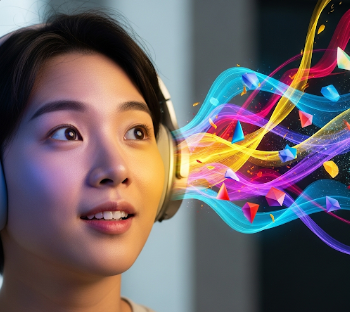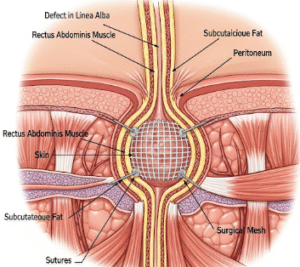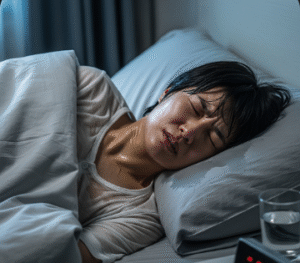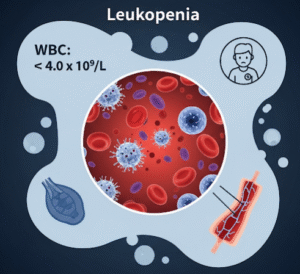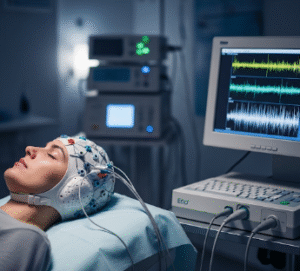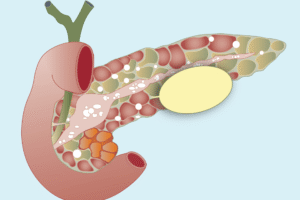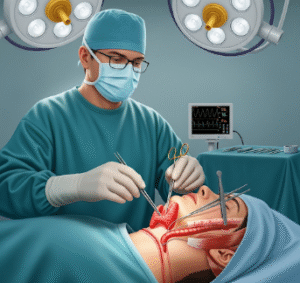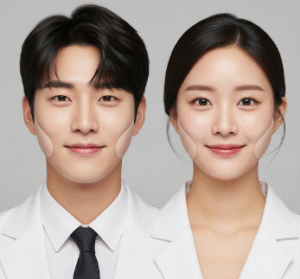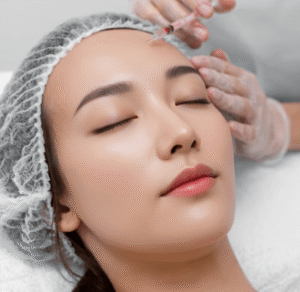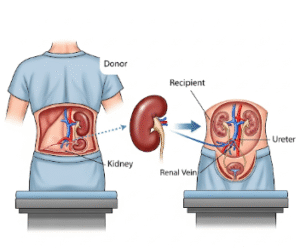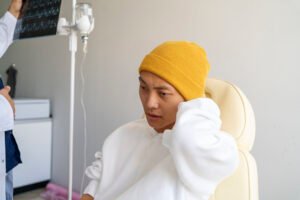➤ Overview
Synesthesia is a neurological condition where stimulation of one sensory or cognitive pathway leads to automatic, involuntary experiences in another sensory pathway. For example, an individual may see colors when hearing music or associate numbers with specific colors.
Though not considered harmful, synesthesia can affect daily experiences, learning, and perception. In South Korea, neurologists and psychologists evaluate synesthesia to understand its impact on cognition, creativity, and mental health.
➤ Key Facts
→ Synesthesia is more common than previously thought, affecting roughly 4% of the population.
→ It is involuntary and consistent; the associations typically remain the same over time.
→ Synesthesia can enhance memory, creativity, and artistic abilities in some individuals.
→ There are many forms, including grapheme-color synesthesia, chromesthesia, and lexical-gustatory synesthesia.
→ It is usually benign, but in rare cases, it can interfere with learning or cause sensory overload.
→ Some individuals first notice it in childhood, while others may recognize it in adulthood.
→ Genetic factors may play a role, as it sometimes runs in families.
➤ What is Synesthesia?
Synesthesia occurs when the brain’s sensory pathways interact atypically, creating crossed sensory perceptions:
→ Grapheme-color synesthesia – Letters or numbers evoke specific colors.
→ Chromesthesia – Sounds, such as music or voices, trigger colors or visual experiences.
→ Lexical-gustatory synesthesia – Words or sounds evoke specific tastes.
→ Spatial sequence synesthesia – Numbers, days, or months are perceived in specific spatial arrangements.
→ Mirror-touch synesthesia – Feeling a sensation when observing someone else being touched.
Korean neurologists use neuroimaging and psychological testing to identify synesthetic experiences and their patterns.
➤ What Symptoms are Related to Synesthesia?
Symptoms vary depending on the type of synesthesia, but common experiences include:
→ Seeing colors when hearing sounds (music, voices, or environmental noises).
→ Tasting flavors when hearing words or reading text.
→ Associating numbers, letters, or days with specific colors or shapes.
→ Feeling touch sensations when observing others being touched.
→ Enhanced memory or recall due to cross-sensory associations.
→ Occasional sensory overload if multiple stimuli are present simultaneously.
→ Consistency over time, such that triggers always produce the same response.
→ Emotional responses linked to sensory experiences, which can be positive or overwhelming.
➤ What Causes / Possible Causes?
The exact cause of synesthesia is not fully understood, but research suggests a combination of genetic and neurological factors:
→ Increased neural connectivity – Unusual cross-talk between sensory regions of the brain.
→ Genetic predisposition – Synesthesia often appears in families.
→ Developmental factors – Brain organization during childhood may influence sensory processing.
→ Neurotransmitter variations – Differences in dopamine or other chemicals may affect perception.
→ Sensory sensitivity – Some individuals have heightened sensory perception that facilitates cross-activation.
→ Brain plasticity – Early experiences may strengthen connections between sensory pathways.
→ Association with other conditions – Sometimes observed in autism spectrum disorder or migraine with aura.
➤ When Should I See My Doctor?
Synesthesia is usually harmless, but medical consultation is warranted if it interferes with daily life or causes distress:
→ Sensory experiences are overwhelming or cause anxiety.
→ Difficulty distinguishing real stimuli from synesthetic perceptions.
→ Interference with learning, reading, or work due to cross-sensory associations.
→ Sudden onset in adulthood, which could indicate neurological changes.
→ Accompanied by headaches, seizures, or other neurological symptoms.
→ Desire for professional assessment for educational or occupational support.
➤ Care and Treatment
Management focuses on understanding and adapting to synesthetic experiences rather than “curing” it:
→ Education – Learning about synesthesia can reduce confusion or stress.
→ Coping strategies – Techniques to manage sensory overload, such as noise-canceling headphones or visual filters.
→ Cognitive therapy – For individuals who experience anxiety or interference with daily tasks.
→ Occupational adjustments – Modifying environments for comfort in school or workplace.
→ Monitoring neurological health – Regular check-ups if synesthesia is accompanied by other neurological symptoms.
→ Leveraging strengths – Using synesthesia to enhance creativity, memory, or learning.
→ Support groups – Sharing experiences with other synesthetes to normalize experiences.
➤ Treatment Options in Korea
South Korea offers comprehensive neurological and psychological support for synesthesia:
Diagnosis in Korea
→ Psychological assessments to identify the type and pattern of synesthesia.
→ Neuroimaging (fMRI, EEG) to study cross-sensory neural activation.
→ Neuropsychological testing to understand cognitive impact and learning implications.
Medical Treatments in Korea
→ Primarily supportive care; pharmacological treatment is rarely needed unless synesthesia causes anxiety or distress.
→ Cognitive-behavioral interventions for coping with sensory overload.
→ Neurofeedback or mindfulness therapy for managing stress or sensory sensitivity.
Advanced Therapies in Korea
→ Research-based interventions for synesthesia’s impact on cognition or learning.
→ Multidisciplinary care combining neurology, psychology, and occupational therapy.
→ Integrative approaches for enhancing creativity, educational performance, and quality of life.
Rehabilitation & Support in Korea
→ Education for families, teachers, and employers about synesthetic experiences.
→ Programs for stress management, sensory adaptation, and skill development.
→ Opportunities to leverage synesthesia in artistic, musical, or academic pursuits.

